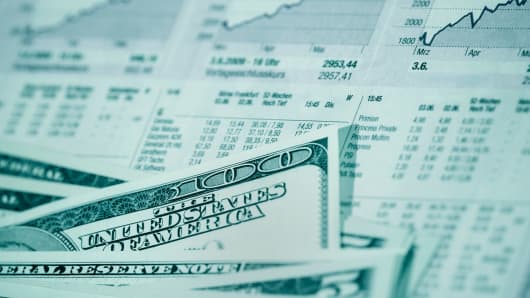Some of the best-known hedge funds have struggled this year to outperform the stock market, with many turning in 3 percent or 4 percent year-to-date returns during a period where the S&P 500 was up nearly 6 percent.
SAC Capital Advisors, which puts its $12 billion under management into long and short equities bets, and the York Investment Ltd. fund within York Capital Management, a $15 billion fund company that focuses on event-driven investments, both turned in middle-of-the-road performances.
SAC saw returns of about 3.2 percent through the end of February, said someone familiar with the matter, while the York Investment fund generated 3.6 percent through February 18, according to preliminary performance records and another person briefed on the matter.
Those funds aren’t alone. Overall, according to data kept by Hedge Fund Research, which tracks and analyzes hedge fund results, the industry had a middling first two months of 2011, with the average fund up only 1.3 percent.
There were exceptions to the trend, however. Third Point Partners, the flagship U.S. fund run by Third Point LLC, which manages nearly $6 billion, churned out 8 percent returns, says a company official. Winning investments, this person said, included gold, energy companies, and both credit and equities plays in NXP Semiconductors, the Dutch chip company whose shares are up 39 percent so far this year.
On the flip side, the flagship fund run by the $15 billion macro fund company Moore Capital Management, which experienced a volatile 2010, is largely flat through February 17, according to preliminary records. And Element Capital, the macro fund that reported astonishing returns of close to 30 percent last year, is down nearly 3 percent through February 17, according to a preliminary record.
Still, Element’s 2010 returns were so impressive that it recently grew its assets under management by roughly $1 billion to $2.5 billion, according to the records.
Similarly, Saba Capital, the credit fund company run by former Deutsche Bank trader Boaz Weinstein, has also grown dramatically in a short period of time—from just $140 million when it opened about a year and a half ago to the current $2.65 billion, according to someone familiar with the matter.
Saba generated 2.9 percent returns through the end of February in part due to relative-value trades in energy and insurance, this person said.
Watch Kate Kelly weekdays at Noon ET on CNBC's "The Strategy Session."
Questions? Comments? Write to kellycomments@cnbc.com



